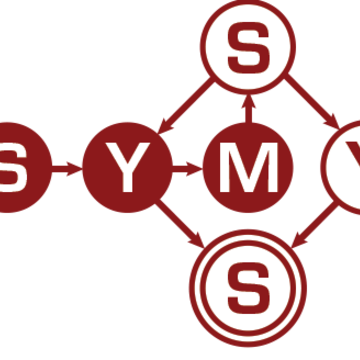SSP Forum: Richard Kahn and Lucas Agudiez Roitman (M.S. Candidates)

The
Symbolic Systems Forum
presents
How Public Opinion Changes: Using Distributed Word Representations to Track Media Frames of Charged Topics
Richard Kahn (M.S. Candidate)
Symbolic Systems Program
and
Using AI and Deep Learning to Predict IQ and Reading Skills in Humans through Analysis of Human Brain White Matter Fascicles
Lucas Agudiez Roitman (M.S. Candidate)
Symbolic Systems Program
Monday, June 8, 2020
12:30-1:20 pm
Join from PC, Mac, Linux, iOS or Android: https://stanford.zoom.us/j/92146755757
Meeting ID: 921 4675 5757
SIP: 92146755757 [at] zoomcrc.com (92146755757[at]zoomcrc[dot]com)
ABSTRACTS:
(1) Richard Kahn, "How Public Opinion Changes: Using Distributed Word Representations to Track Media Frames of Charged Topics" (Primary Advisor: Chris Potts, Linguistics)
Within the last few decades, the valence of marijuana on the stage of public opinion has changed dramatically. The belief that marijuana should be legal has become mainstream, going from around 20% support in the 1980s to two-thirds support as of 2019. The policy changes have been similarly dramatic. In 1991, marijuana was criminalized for medical and recreational purposes in all fifty states. As of 2020, 33 states have legalized medical marijuana and eleven have legalized marijuana for recreational use. I use word embeddings on a generated corpus of New York Times and Omaha World Register articles from 1980 to the present to explore this question with a potentially more granular methodology, capturing the semantic shifts that the terms marijuana and cannabis have experienced in that time range.
(2) Lucas Aguidez Roitman, "Using AI and Deep Learning to Predict IQ and Reading Skills in Humans through Analysis of Human Brain White Matter Fascicles" (Primary Advisor: Brian A. Wandell, Psychology; Garikoitz Lerma-Usabiaga; Psychology)
This study combines Artificial Intelligence techniques and white matter data in the Human brain, to analyze potential pathways to transhumanism: enhancing human cognitive abilities, and eventually creating a human-computer interface that could result in brains enhanced by artificial intelligence. For example, using machine learning technologies, we could predict the particular development curves for some brain regions or tracts, and teach particular skills at the right time, when that area’s development is taking place. Moreover, by imaging the brain, we could identify particular sections to stimulate while learning new skills, as performed by some existing researchers and companies.
In this research, we have used brain magnetic resonance imaging techniques to capture brain white matter structure (brain tracts in particular) to train deep learning and other shallow artificial intelligence models which predict reading abilities and cognitive skills' scores. Particular brain tracts’ fractional anisotropy profiles have correlations with reading proficiency. We analyze the relationship between white matter in the human brain and reading and cognitive abilities. We propose multiple machine learning models that could help predict cognitive skills measures such as IQ and reading proficiency in subjects based on their fractional anisotropy profiles.